Noora Niasari opens her feature Shayda at Melbourne International Film Festival
Tehran-born Australian director Noora Niasari has made a ‘love letter’ to mothers, daughters and the brave women of Iran.
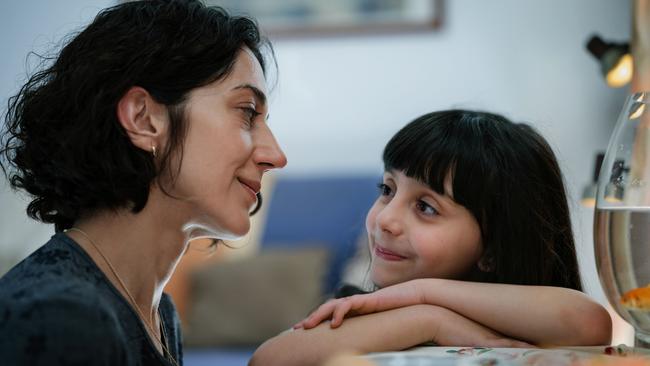
Noora Niasari was two weeks into editing her debut feature film Shayda when news came of the death of 22-year-old Iranian woman Mahsa Amini. Amini died in a Tehran hospital after her arrest by Iran’s morality police for not wearing the hijab properly. Her death in September last year sparked the latest wave of women-led protests in Iran.
Far away in regional Victoria, Niasari, an Iranian-Australian filmmaker, was working on her film that also deals with the subject of violence against women. Shayda is based on Niasari’s personal experience of living in a women’s shelter with her mother from the age of five, after they had arrived in Australia from Iran when Niasari was a baby.
“The murder of Mahsa Amini and the beginning of the female-led revolution in Iran started probably two weeks into our edit,” says Niasari, 32. “At the time, I was experiencing a deep depression after the shoot, because of how much exposure to my childhood trauma there was and how challenging it was psychologically. It was hard to be motivated to continue working on the film.”
She completed Shayda just in time for its premiere at this year’s Sundance Film Festival, where it won the world cinema audience award. Her touching mother-daughter story opens the Melbourne International Film Festival on Thursday, before a national release on September 28.
It greatly helped when her “remarkable” Iranian-American editor, Elika Rezaee, came out from California to work on the film with her.
“We were both very motivated and energised by the potential of finishing the film and shining a spotlight on Iranian women,” she says. “To be able to have this platform is really what propelled us to finish the film for the Sundance deadline.
“It allowed me to think beyond my personal experience. Even if, obviously, the film is very personal, it really is a love letter to mothers and daughters and to the brave women of Iran, because Shayda is just one of many courageous Iranian women fighting for her freedom. So those parallels became even more powerful, because of what’s happening in Iran. I’m so proud to be an Iranian woman in this time.”
Since this interview, Iranian authorities have made another crackdown on women seen to be flaunting the country’s strict moral dress code. This latest affront to women’s independence only makes Niasari’s film all the more compelling.
“This is a woman’s issue, of a woman’s freedom, of a woman’s independence, of women’s desire to express themselves in the world – and to be free,” she says. “It just happens that the first women-led revolution has been in Iran. It’s been incredibly inspiring for people all over the world.”
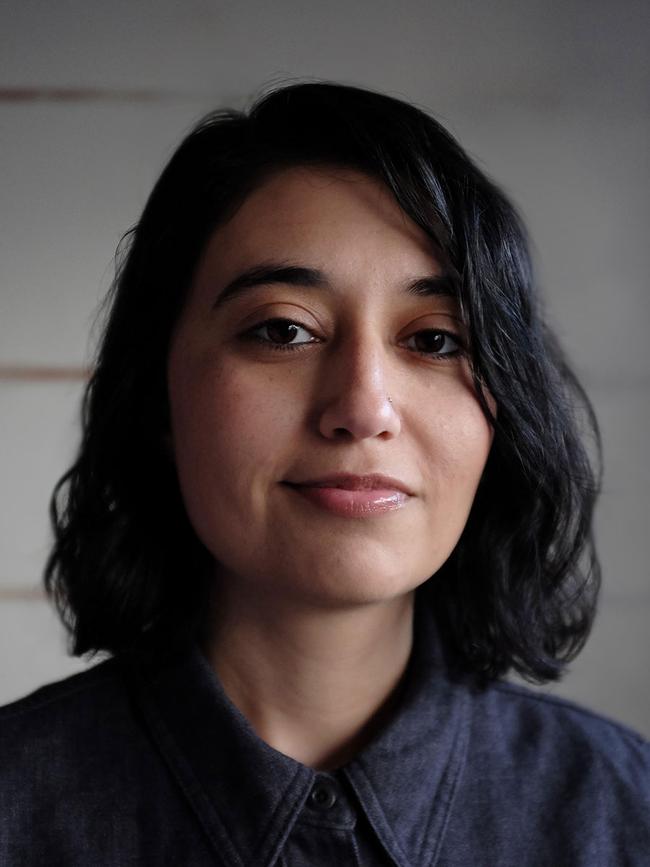
Niasari had been fortunate in casting Zar Amir Ebrahimi as the mother in Shayda as the actor went on to win last year’s Cannes best actress prize for her performance in Holy Spider. The pair will soon head to the Locarno film festival where Shayda is the closing film. Executive producer Cate Blanchett says she has made the “difficult” decision to not attend the festival due to the actors’ strike. She was due to present a conversation at the festival with Niasari and Amir Ebrahimi.
Niasari recalls how Iranian French actor Golshifteh Farahani (Extraction), who like Amir Ebrahimi lives in exile in France, had suggested her friend for the role.
“In the first 10 seconds of her audition, I knew that Zar was Shayda,” she says. “She’s remarkable in the film, her performance is just so nuanced and layered, and she brings so much of her personal experience to the role. We were able to connect over our shared trauma, together with my mother. The three of us were incredibly close during the making of the film. It was like a little sisterhood and we were able to create something special because of it.”
The film follows Shayda and her six-year-old daughter, Mona (the remarkable Selina Zahednia) as they seek refuge in an Australian women’s shelter, run by the no-nonsense Joyce (Leah Purcell), in 1995. They are initially happy, celebrating Persian New Year (Nowruz) and generally bonding with the other women, while occasionally being subjected to casual racism and prejudice.
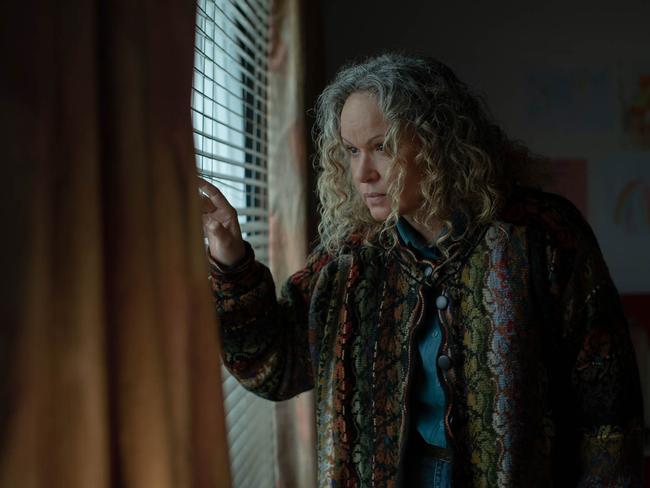
When Shayda’s estranged husband Hossein (Osamah Sami) re-enters their lives, insisting on seeing his daughter and with a court order that allows him unsupervised visitation rights, Shayda, having survived sexual violence at Hossein’s hands, starts to live in fear of what might happen.
Hossein, a former academic, is adamant on returning to Iran and says he has changed, but Shayda knows better. She is right.
“The patriarchy, whether or not you live in Iran, is something that needs to be unlearned,” Niasari says. “I think that a lot of men lack the self-awareness and the motivation to change, which is unfortunate. I’m hopeful that films like Shayda may spark something, in terms of a shift in seeing the subjective experience of this woman and what the effect of all of this patriarchy and stifling of expression is doing.
“Perhaps it can trigger some self-awareness for men and also the women around them who are not holding them accountable for their behaviour and their actions. It is a collective issue.”
She commends the women’s shelter in Brisbane – the location is unnamed in the film – for giving her and her mother a start in Australia. At the film’s end we watch actual footage of her there with her mum. Joyce, who ran the shelter for 25 years, remains a lifelong friend – “She’s kind of like my godmother, because we didn’t have any family here” – and Purcell plays her with considerable force.
“Leah was very protective of everyone and, you know, she’s had similar experiences,” Niasari says.
“She also connected closely with the real-life Joyce and really embodied the character with her full heart and soul.”
Niasari arrived in Australia at the age of one and has lived in Brisbane, Sydney and Melbourne. “We moved around a lot because of my mum’s studies and work,” she says. “My mother has her own business – she’s an audiologist. She also has a doctorate. She’s a very accomplished woman.”
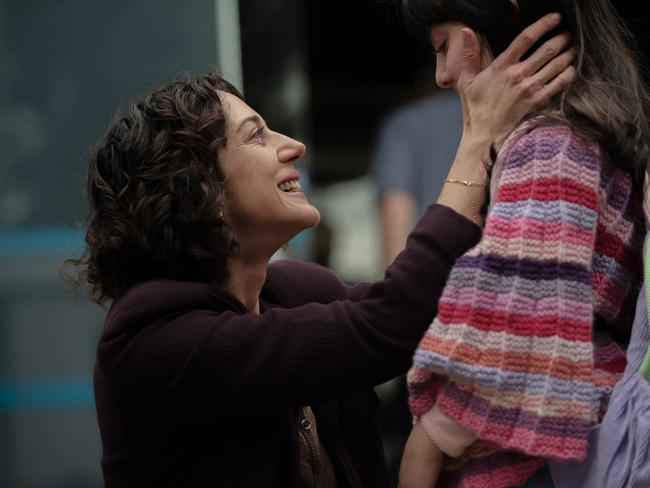
So is Niasari. Initially she went to architecture school in Sydney and then discovered her calling at film school in Melbourne. She travelled the world making short films and was at one point mentored by the late, great Iranian director and Palme d’Or winner, Abbas Kiarostami. “He asked a lot of interesting questions about my family, especially about my dad, some of which sparked ideas about the Hossein character in the film,” she says.
Niasari is not in contact with her father and doubts she can return to Iran. “I wouldn’t take the risk at this stage,” she says.
Nevertheless, while she has a full life in Australia, she says her soul is Iranian. “My mother really instilled in me the poetry, the literature, the food, the dance, the singing, all of the beautiful lightness of our culture, despite the fact that we were living in the Australian suburbs,” she says.
Amir Ebrahimi also has used her recent success to talk about the experience of women in Iran. The 42-year-old has even appeared in a film about it, My Worst Enemy, where she improvises as an Islamic Republic interrogator, at one point making her subject (actually the film’s Paris-based Iranian director, Mehran Tamadon) strip naked.
The actor had been little known when she made a sex tape with her then boyfriend earlier in her career. When she became famous, another actor stole the video, which was circulated on the streets and leaked to the internet. As a result, she endured six months of interrogation, was not allowed to leave the house and was forbidden from appearing in Iranian film and television for a decade.
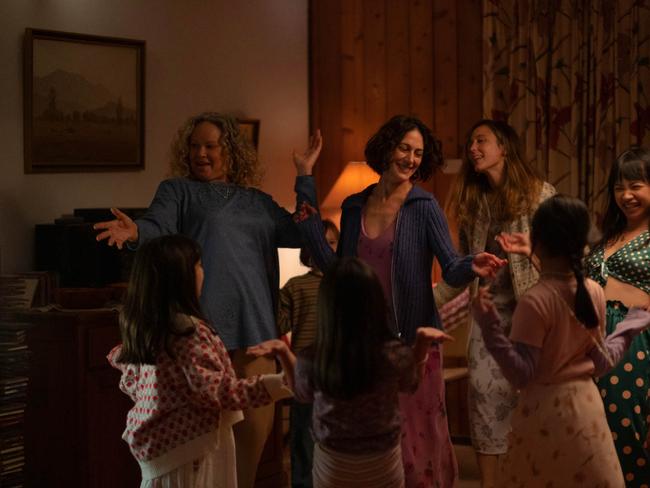
Facing prison time and 99 lashes, she managed to escape to France in 2008. She spoke no French but gradually worked her way into the local film industry, and also directed short films. She became a French citizen in 2017. Last year, she appeared on the BBC’s 100 Women list as one of the most inspiring and influential women of the year. Certainly, she is not afraid of speaking out.
In our interview in Berlin, where My Worst Enemy premiered, Amir Ebrahimi says she does not regret the sex tape; making them is not unusual in Iran. But the experience of her persecution since has driven her to speak out about the lack of freedom in the country.
“Iran is a country where boys and girls of any age are under pressure to not have a normal relationship,” she says. “We have separate schools, we have separate parties – or we had, you know. There are 2000 laws to separate you on the basis of gender.
“So I think it’s really normal psychologically for everything to get really exaggerated. People are thirsty to meet each other, they are thirsty to sleep with each other, they are thirsty to do, I don’t know, parties and drugs. The most beautiful parties I’ve ever had were in Iran. We are crazy about that because we are always not allowed to do it.”
The trauma of the interrogation has stayed with her so that when she is at airports, she is fearful. “Even after 15 years, I still have it. I just hear those questions about where I am going, where I come from and why I am travelling and I start to shake.”
For the moment, Amir Ebrahimi is busy. She is part of the competition jury in Locarno and her first feature as director, Tatami, co-directed by Israel’s Guy Nattiv (Golda), and in which she appears as a Judo coach, will have its world premiere in Venice.
Amir Ebrahimi says she did not see much of Australia during the film shoot for Shayda because she was so busy. But she loved getting to know Niasari, her mother, and seven-year-old actor Selina, who Niasari discovered in an Australia-wide search.
“If I had time, I would talk on the phone with Noora’s mum and then I’d prepare for the next week,” she says. “The Australian part of crew were so nice and so professional. They inspired me. It was also a good feeling to know that Cate Blanchett was behind us. She’s attracted to these challenging, personal, low-budget projects, as I am too. I think we are crazy.”
Shayda opens at the Melbourne International Film Festival on Thursday and in cinemas from September 28.

To join the conversation, please log in. Don't have an account? Register
Join the conversation, you are commenting as Logout